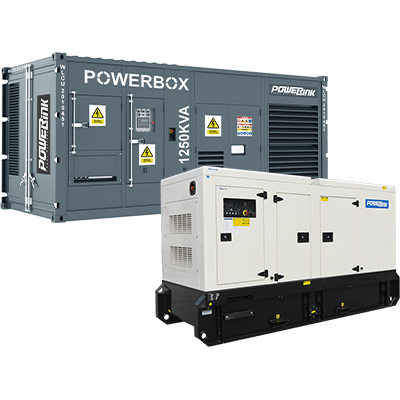A backup diesel generator is a device that provides emergency power to a system when the primary power source fails. Diesel generators are typically used in applications where there is a need for a continuous, reliable power supply, such as in hospitals, data centers, and manufacturing facilities.
Diesel generators work by converting the energy in diesel fuel into electrical energy. This process is known as diesel oxidation. The electrical energy produced by the generator is then used to power the system.
Diesel generators are a reliable and efficient way to provide emergency power. However, they can be expensive to purchase and operate. In addition, they require regular maintenance and can be loud when in operation.
Components of a Diesel Generator:
Diesel Engine: The engine burns diesel fuel to produce mechanical energy.
Alternator: Converts the mechanical energy from the engine into electrical energy.
Fuel System: Supplies diesel fuel to the engine.
Cooling System: Helps regulate the temperature of the engine to prevent overheating.
Exhaust System: Removes the combustion byproducts from the engine.
Control Panel: Monitors and manages the generator's operation.
Advantages of Diesel Generators:
Reliable Power: Diesel generators can provide a stable power supply during outages, ensuring uninterrupted operation of critical systems.
Fuel Availability: Diesel fuel is widely available, making it easier to source during emergencies.
Durability: Diesel engines are generally robust and can withstand heavy loads and extended operation.
Efficiency: Diesel generators are known for their fuel efficiency and can generate more electrical power per unit of fuel compared to other generator types.
Considerations and Challenges:
Cost: Diesel generators are typically more expensive to purchase than alternative power backup solutions.
Maintenance: Regular servicing, oil changes, and filter replacements are necessary to ensure optimal performance and longevity.
Noise and Emissions: Diesel generators can be noisy during operation and produce exhaust emissions, requiring proper ventilation and compliance with environmental regulations.
Size and Weight: Diesel generators tend to be larger and heavier compared to other backup power options.
Other Types of Backup Power Systems:
Uninterruptible Power Supply (UPS): Provides short-term power through batteries or flywheels until a secondary power source, such as a generator, can start.
Natural Gas Generators: Use natural gas as fuel, which is more convenient for areas with a readily available gas supply.
Solar Power Systems: Utilize solar panels to convert sunlight into electrical energy, offering a renewable and environmentally friendly power source.
When choosing a backup power system, it's important to consider the specific requirements of the application, such as power needs, runtime, budget, and environmental considerations.
